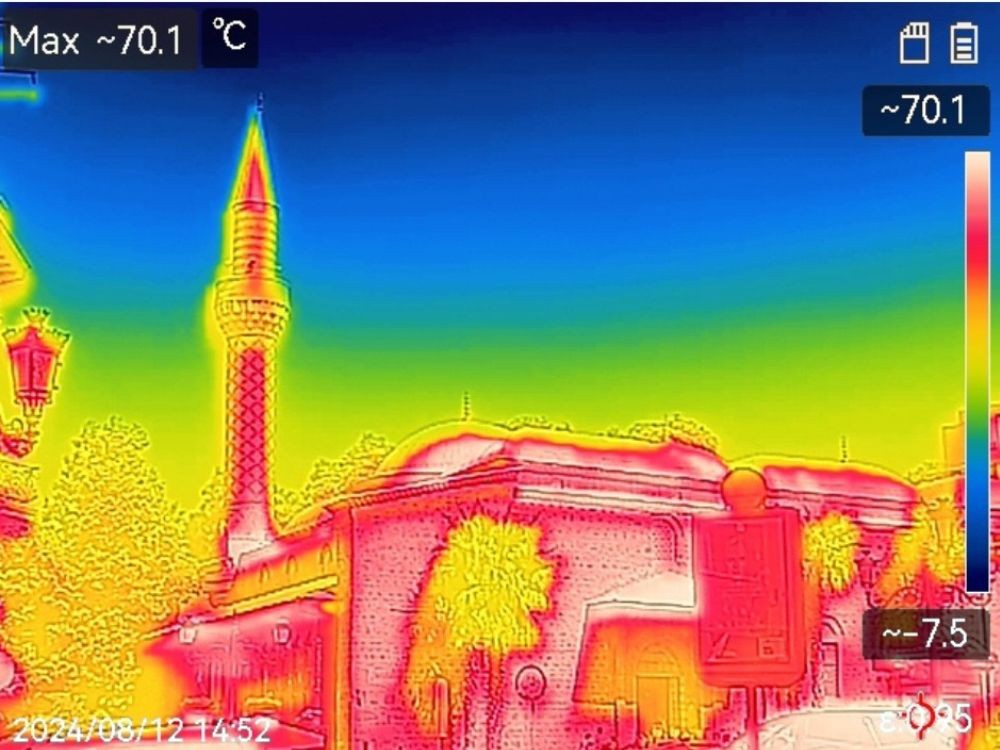During the hottest days of summer, members of Greenpeace travel around the country to show how hot it really is in the urban environment. With the help of thermal cameras, they detect the temperature around the buildings, which in places like Plovdiv reaches up to 70°C. The experiment wants to draw attention to the problem of lack of green areas in cities.

The main goal of these studies, according to director of Greenpeace Bulgaria, Meglena Antonova, is to show that cities are getting hotter because of the urban heat island effect. This extra heat is caused by exhaust fumes, dark asphalt and building materials and lack of vegetation. Climate change is already exacerbating the problem.
According to a recent study by the Barcelona Institute of Global Health, trees can reduce the death rate during heat waves in cities by one third.
Photos: Greenpeace-Bulgaria
In 2024, Bulgarians actively used the Google search engine to get informed about topics reflecting what was happening in the world and in this country. Bulgarian athletes once again proved that they can inspire and arouse national pride. That is why..
The Bulgarian Association of Crete has been working for nine years as a bridge between Bulgaria and the Bulgarian population on the southernmost Greek territory, sometimes replacing the most important partner - the state. One of the aims of the..
For the 16th time on January 1, the Tsarevets Fortress in Veliko Tarnovo welcomed the first tourist. This is the only architectural and museum complex in the country that operates year-round and is the most visited open-air museum in..
Novo Oryahovo is a village in north-eastern Bulgaria. It is located in a picturesque corner in the municipality of Dolni Chiflik - 2 km..

+359 2 9336 661
